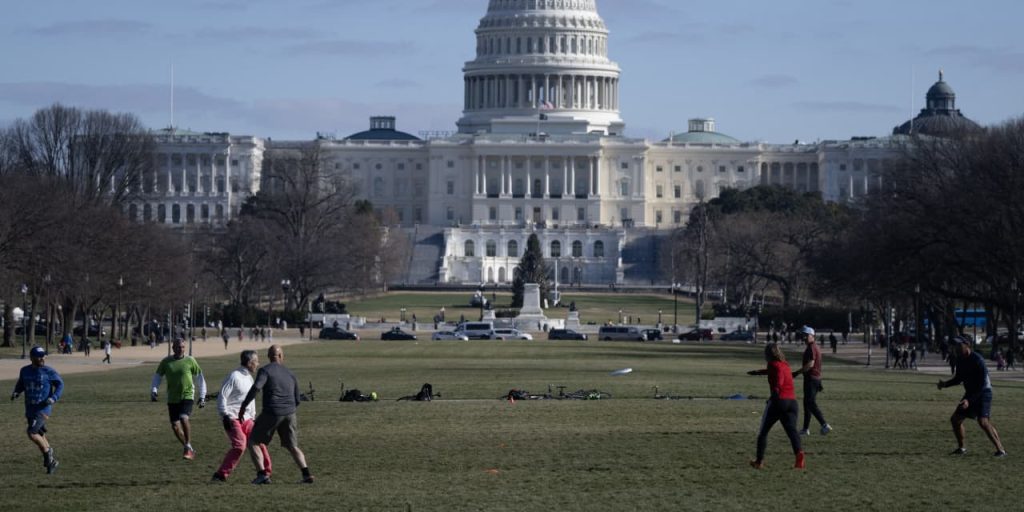A deal on spending levels is shifting sentiment over whether a partial U.S. government shutdown could hit later this month, with analysts sounding more optimistic about avoiding closures.
“With a deal on toplines in place, government funding will probably be enacted at these levels in time to avert a Jan. 19 shutdown,” Tobin Marcus, Wolfe Research’s head of policy and politics, said in a note Monday.
Chances for a shutdown “are way down on the deal, though not to zero,” he added.
The Democratic-run Senate and Republican-controlled House of Representatives face a Jan. 19 deadline to make a funding deal that would prevent a partial shutdown. That’s because a two-tiered bill that Congress passed in November extended funding for some agencies and programs until Jan. 19, while continuing it for others until Feb. 2.
The deal announced Sunday largely follows spending caps for defense
ITA
and domestic programs set as part of a May bill to lift the debt ceiling, but it does provide some concessions to House Republicans who wanted additional cuts. Lawmakers needed this deal that puts spending for the current fiscal year at about $1.66 trillion so that appropriators could write the bills that set funding for agencies, an Associated Press report noted.
“There is still some chance of a breakdown between this deal and final passage — either because the deal collapses over disputes about policy riders … or because Speaker Johnson faces a revolt from conservatives. But we think the chance is fairly low,” Wolfe’s Marcus said, referring to Louisiana Republican Mike Johnson, who has led the House since October.
Last week, some analysts were downbeat over whether a divided Washington could avoid a shutdown, with one analyst saying a shutdown looked likely. The forecasts now have improved.
“While a shutdown remains possible, this is clear progress,” said Washington policy analysts at Raymond James in a note, adding that the impact of Sunday’s deal on markets and fiscal policy should be “a net positive.”
“We generally have not been too concerned from a market perspective for a government shutdown. A shutdown is still possible, but the commitment to an FY24 budget without cuts will prevent a fiscal drag on the U.S. economy,” the Raymond James team also said.
Related: What do shutdowns mean for markets?
The main U.S. stock gauges
SPX
COMP
were mostly gaining Monday, though the Dow Jones Industrial Average
DJIA
was lower as Boeing
BA,
dropped on 737 Max 9 planes getting grounded following an in-flight blowout.
Beyond the potential shutdown, Washington has been wrestling over a possible $110 billion supplemental spending package that would involve wartime aid for Israel and Ukraine as well as money for securing the southern U.S. border and reforms to immigration policy.
There are also hopes for a tax deal, in which a partial revival of an expanded child tax credit would get paired with tax breaks for businesses — including a key one for research and development expenses that big companies pushed for unsuccessfully a year ago.
Read the full article here
